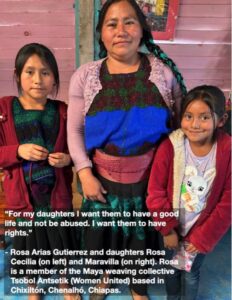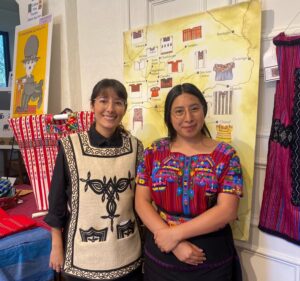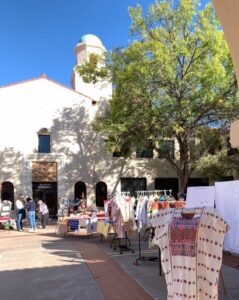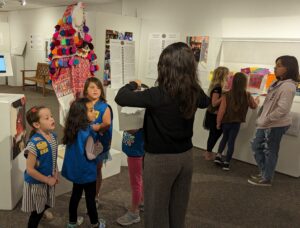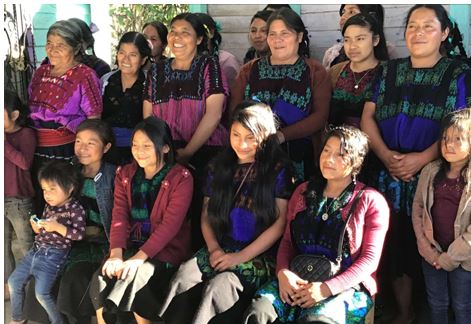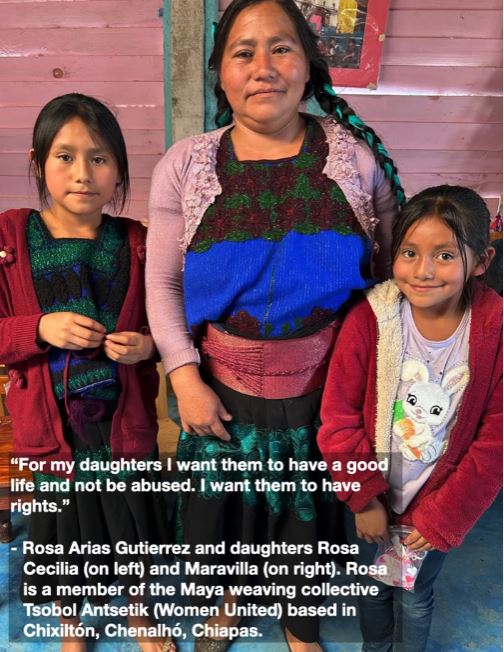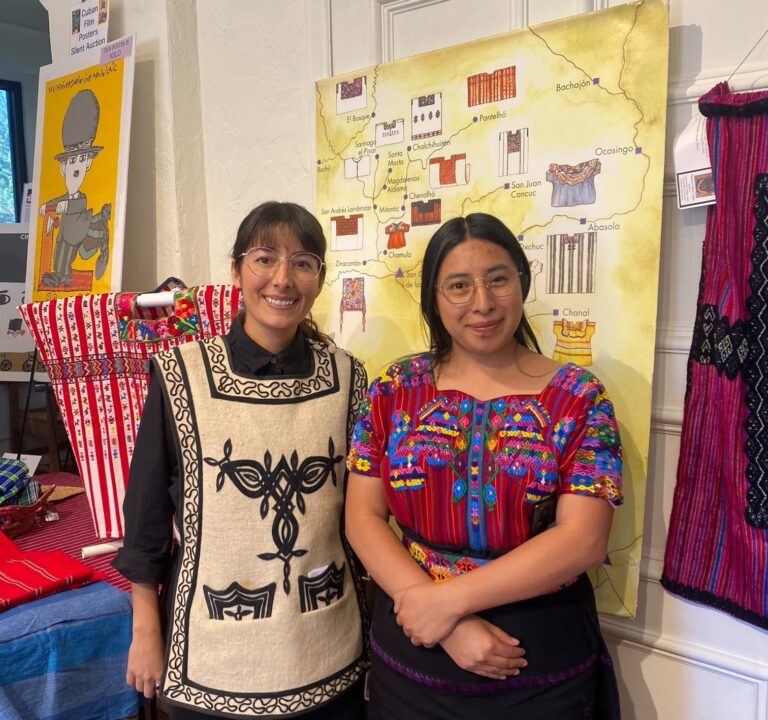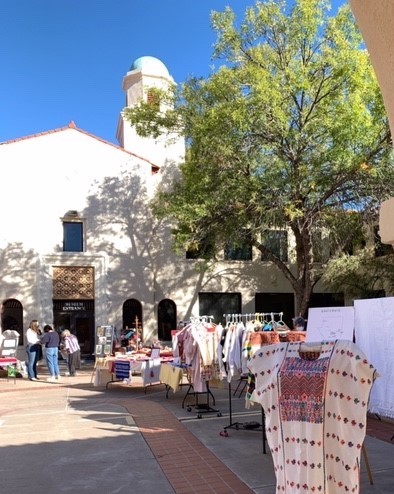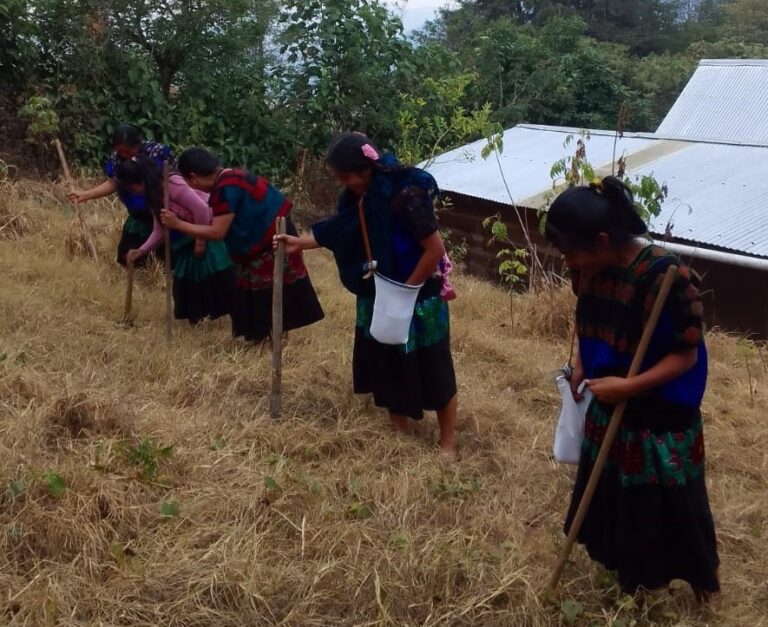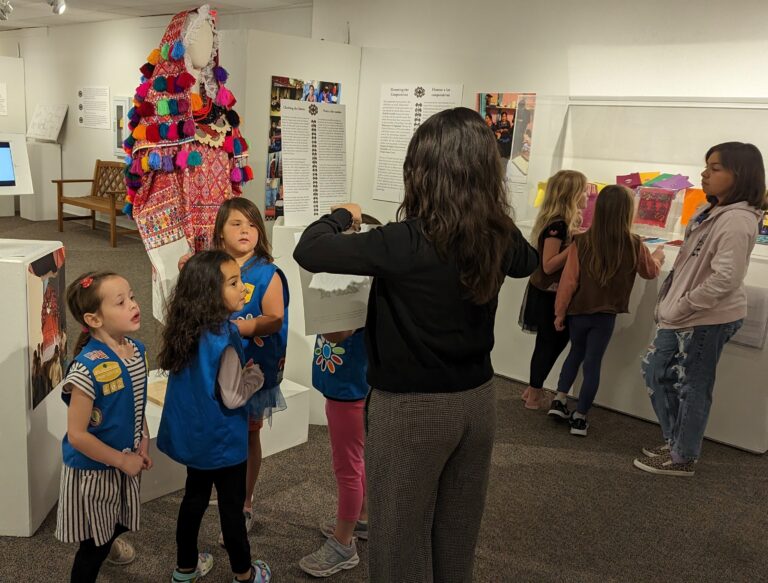 About a month ago I was in Anapra, Juárez, Mexico to show “Maya Faces in a Smoking Mirror” at The Corpus Christi Catholic Church. The church is a humble one in a colonia of Juárez that has seen its share of violence over the years. But the people of this community have demonstrated more than their share of creative resistance to violence and repression. Community organizer, Cristina Coronado, invited me to show the film to members of the parish and surrounding community so they could learn about how fellow Mexicans in a distant state are also resisting and struggling for better lives for themselves and future generations.
About a month ago I was in Anapra, Juárez, Mexico to show “Maya Faces in a Smoking Mirror” at The Corpus Christi Catholic Church. The church is a humble one in a colonia of Juárez that has seen its share of violence over the years. But the people of this community have demonstrated more than their share of creative resistance to violence and repression. Community organizer, Cristina Coronado, invited me to show the film to members of the parish and surrounding community so they could learn about how fellow Mexicans in a distant state are also resisting and struggling for better lives for themselves and future generations.
I went with my friends Sally Meisenhelder and Sarah Murphy of Weaving for Justice. Crystal Massey had hoped to go with us but she couldn’t come at the last minute due to working day and night in El Paso with volunteer lawyers trying to reunite refugee families separated at the border by ICE. Our trip to Juárez was a joyful moment during a time of much trauma and grief just across the border in El Paso.
Father Bill Morton, the priest at The Corpus Christi Catholic Church, hasn’t been at the parish very long but he has a long history of fighting alongside the people of Juárez for social justice and has already done many things to raise the consciousness of his parishioners. Cristina and Padre Bill hoped that seeing the film would deepen people’s awareness of a different group of fellow Mexicans struggling in their own ways for better lives.
About 45 people attended the film showing, including several children. Before the film, Sarah had the idea to give the children tiny felted turtles that Weaving for Justice members sell from Mujeres Por La Dignidad (Women for Dignity), a Zapatista weaving co-op in Chiapas. The turtles were a big hit. We told the children that they were made by Maya women from Chiapas with their own hands. After the film, Father Bill came back to the turtles and asked the children, “Where are the turtles made — in China?” “No!!,” one of the boys corrected him, “In Chiapas!” Then father Bill asked if they were made on a machine and a few children yelled out, “No! By hand!” This exchange gave me the idea to pass around a couple tote bags which still smell of smoke from the fires where they were dried before being shipped to us. As the kids buried their noses in the smoky cloth their eyes lit up with understanding. They had already seen in the film how Claudia, a single mother, washed her 3 year-old son Berlin’s clothes. Now they could smell the fire that dried the clothes and weavings for sale. During the film the children giggled while their parents chuckled at the scene of Claudia and Berlin walking home hand-in-hand from the water hole, Berlin’s pants just barely covering his bottom.
We had more comments than questions at the end of the film. A few people commented on how many people in Chiapas grow their own food and have a close connection to the earth, unlike in Juárez, where they have to buy everything. They also talked about how the people in Chiapas try to protect mother earth, while in Juárez they feel disconnected from her. People commented about how many Maya people still have their language and culture and are defending these and that this shared heritage helps them organize. We talked about how they, too, are struggling in Anapra to build a strong community and defend it. We talked about how resistance is not only external, but internal, that it is strengthened by one’s faith and love for others.
There were some tears. Sofia Alemán, one of the founders of the prayer flag group was moved that she had heard about the women from Chiapas through La Frontera, a fair trade store in Las Cruces, New Mexico where her prayer flag group sold their flags, but until she saw the film she hadn’t understood how the women in Chiapas live, the many difficulties they face.
The highlight of the day for me was question from a little boy about 6 years old. He was prompted to ask it by something I told the audience about an image in the film of corn kernels falling from the sky. I spoke about the different reactions I received from friends in the US and Mexico to this reoccurring image. Some of my US friends thought the image was too contrived and that Bill Jungels, the film’s director, should cut it. But when I showed the film in June 2017 in Chiapas to participants in the film they all felt that the falling corn image was very good. Two participants, Cristóbal and Davíd, both Catholic Catechists from Chenalhó, gave me a compelling explanation for why the image works — because God inspired Bill to use this image to show that all food comes from God who is in Heaven. After he spoke, Davíd said, “Uncle, remember in the Bible in Exodus it says that when Moses was guiding the Israelites through the desert and they were hungry and thirsty and complaining to him, he asked God to send them food and God sent them manna vaj.”
I was delighted to hear Davíd say “manna vaj” instead of just manna. Vaj is the Tsotsil word for tortilla, the staff of life in Maya communities. Although no one knows exactly what manna consisted of, the Israelites were said to have made a sort of round bread out of it, not unlike tortillas. Through his training as a catechist, Davíd has learned how to interpret Biblical teachings in the context of his own language and culture.
After I told this story to the audience in Anapra, the little boy put up his hand and asked me, “Do tortillas really fall from heaven in Chiapas?” I couldn’t understand him at first, but when I did I was delighted, like everyone else. I was impressed that this little boy and the other children sat patiently throughout the hour and 17 minute film, and as the boy’s question suggests, he paid attention!
After the film discussion, Cristina invited the women of both Junt@s Vamos, a cancer support group in Juárez, and Guerilla Prayer Flags, a group in Anapra that makes prayer flags, to speak about their work together.
We ended the gathering with a convivio with fruit, coffee, and delicious Mexican pastries. To show their solidarity with the weavers in Chiapas, a few people bought little turtles and other small woven pieces that we had brought with us and Padre Bill explored with me taking a delegation from the parish to Chiapas. I’d love to help him make this happen so he and his parishioners could meet our friends in the film, especially Cristóbal and Davíd and their spiritual mentor, Padre Marcelo, a former priest in Chenalhó, who like Padre Bill, received death threats due to his community organizing against corruption and exploitation.
– Christine Eber, 16 August 2018[/fusion_text]
